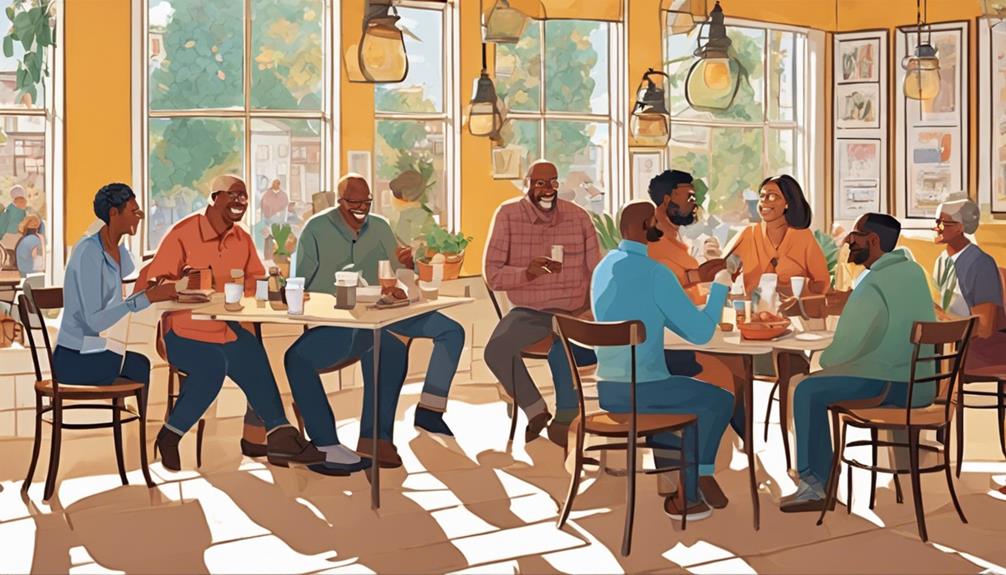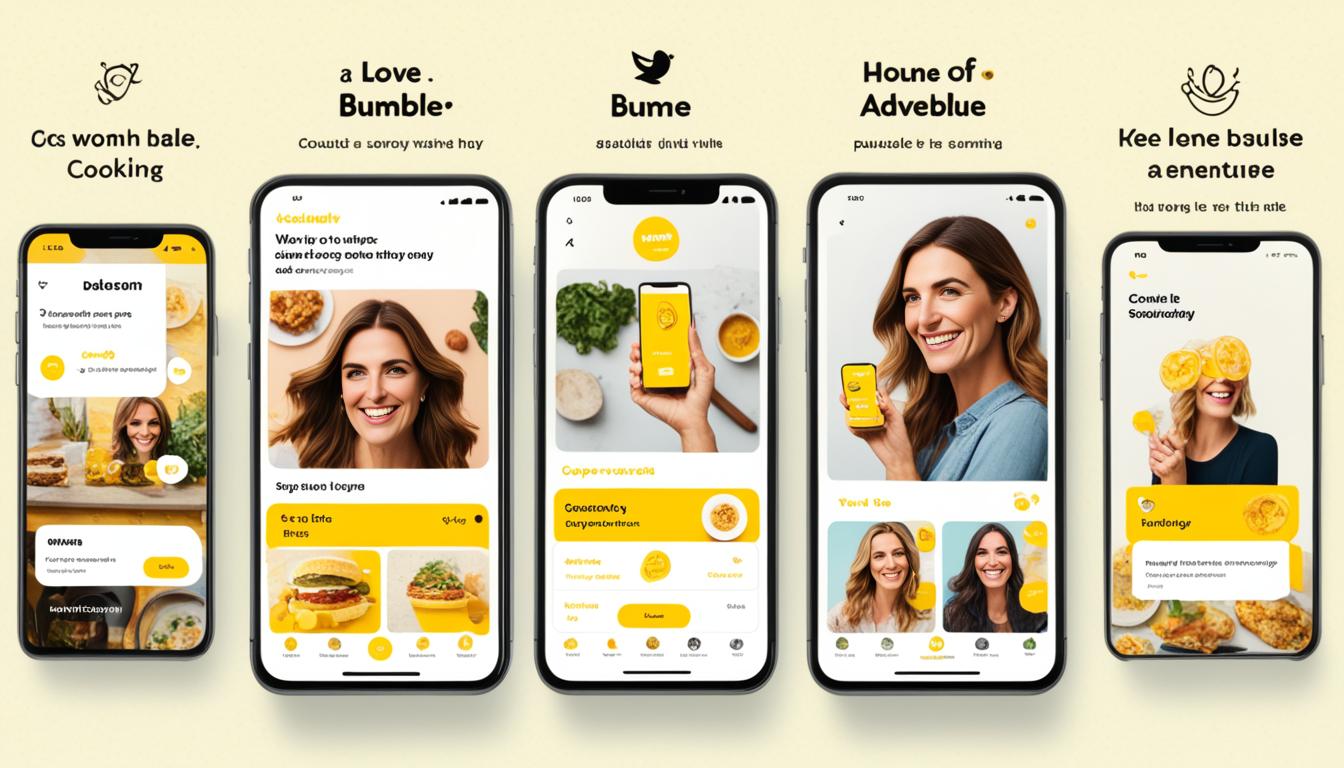As we explore the complex world of contemporary dating practices, it is evident that the vocabulary of therapy has seamlessly integrated into our romantic interactions. From the lingering impact of ghosting to the subtle act of breadcrumbing, these terms have become ingrained in our language, influencing how we approach relationships.
But what implications does this psychotherapeutic vocabulary hold for the future of romantic connections? Let's explore how concepts like gaslighting and trauma bonding have reshaped the landscape of dating, hinting at deeper psychological undercurrents that influence our quest for love and connection.
Key Takeaways
- Therapeutic language revolutionized dating norms.
- Boundaries and self-care are crucial in modern relationships.
- Navigating emotional intimacy requires clear communication.
- Vulnerability in relationships fosters trust and authenticity.
The Influence of Therapeutic Language
Incorporating therapeutic language into modern dating practices has revolutionized how individuals approach relationships, fostering emotional growth and promoting healthy communication patterns within romantic interactions.
The way we now speak about therapy, emotional intelligence, and attachment styles has deeply influenced the landscape of modern dating. Dating apps are playing a significant role in this shift by integrating prompts that encourage discussions around self-care, emotional connection, and mental health.
These conversations aren't just trendy jargon but are reshaping how we understand ourselves and our partners in the dating world.
Boundaries and Self-Care in Dating

Navigating the complexities of dating involves establishing clear boundaries and prioritizing self-care to ensure emotional well-being and fulfillment in relationships. Setting healthy boundaries and practicing self-care are crucial elements in fostering a positive dating experience.
- Communication is Key: Open and honest communication about personal boundaries and self-care needs is fundamental in dating. Expressing your limits and expectations clearly can help build trust and mutual understanding with your partner.
- Self-Compassion Matters: Prioritizing self-care and mental health in dating involves showing yourself kindness and understanding. Remembering to nurture your own needs and well-being can lead to a more balanced and fulfilling relationship dynamic.
- Boundaries for Emotional Health: Establishing boundaries not only protects your mental and emotional well-being but also promotes respect and empathy within the relationship. Setting limits on what's acceptable behavior ensures a healthy and supportive dating environment for both individuals.
Navigating Emotional Intimacy
Understanding emotional intimacy in modern dating requires a deep exploration of attachment styles, boundaries, and emotional intelligence. Our attachment styles, shaped by early experiences, influence how we connect with others. Recognizing our attachment style and that of our partner can enhance our understanding of intimacy dynamics.
Setting clear boundaries is essential for creating a safe space where emotional closeness can flourish. It's crucial to communicate our needs and respect our partner's boundaries to foster trust and security. Emotional intelligence plays a pivotal role in navigating intimate relationships. Being aware of our emotions and effectively expressing them promotes authentic connections.
Self-awareness allows us to understand our triggers and vulnerabilities, enabling us to engage in open and honest communication. Conflict resolution skills are vital for overcoming challenges and deepening emotional bonds. By embracing vulnerability, authenticity, and self-awareness, we pave the way for meaningful emotional connections based on mutual respect and understanding.
Expressing Vulnerability in Relationships

As we deepen our emotional connections in modern dating, expressing vulnerability in relationships becomes a powerful catalyst for fostering authenticity and trust. Opening up about our insecurities and fears allows for a deeper emotional intimacy and connection to flourish. By sharing our personal struggles, we create a space for trust to grow, strengthening the bond between partners. Through vulnerability, we offer our authentic selves, paving the way for empathy and understanding to take root in the relationship.
Key Points:
- Building Trust: Vulnerability is the bridge that connects individuals in a relationship, fostering trust and reliability.
- Enhancing Connection: Expressing vulnerability cultivates emotional intimacy, creating a safe environment for partners to truly connect.
- Strengthening Authenticity: By sharing our vulnerabilities, we showcase our true selves, laying the foundation for an authentic and genuine relationship experience.
In embracing vulnerability, we embark on a journey towards deeper emotional connections, genuine understanding, and lasting trust in our relationships.
Impact on Modern Dating Practices
Incorporating therapy language into modern dating practices has significantly influenced the way individuals navigate relationships and communicate their emotional needs. The integration of terms like setting boundaries, self-care, and attachment styles has fostered a more profound sense of self-awareness and emotional well-being within the dating culture.
Concepts such as ghosting, breadcrumbing, and gaslighting are now common parlance in discussions about modern dating, highlighting a shift towards recognizing and addressing unhealthy relationship dynamics. Dating apps are also playing a role in this transformation by incorporating prompts related to therapy and emotional intelligence, encouraging users to prioritize their mental health in their romantic pursuits.
Frequently Asked Questions
How Does Therapy Help With Dating?
Therapy helps us with dating by enhancing our communication skills, emotional intelligence, and self-awareness. It guides us in recognizing and addressing unhealthy relationship patterns, setting boundaries, and prioritizing mental health.
Therapy empowers us to navigate dating challenges effectively, fostering personal growth, emotional resilience, and healthy relationship dynamics. It's a vital tool in developing fulfilling connections and fostering intimacy.
What Is the Origin of Modern Psychotherapy?
Modern psychotherapy finds its roots in the groundbreaking work of visionaries like Freud, Jung, and Adler in the late 19th and early 20th centuries. Their emphasis on the unconscious mind and early experiences laid the groundwork for contemporary therapy.
Through approaches like CBT, humanistic therapy, and psychodynamic therapy, the field has evolved, with a focus on evidence-based practices and the integration of neuroscience to enhance mental health care.
What Is Weaponizing the Language of Therapy?
Weaponizing the language of therapy involves twisting psychological concepts to control others in dating. It's a manipulative tactic that can include gaslighting, love bombing, or trauma bonding.
These actions harm relationships and erode trust. Recognizing and addressing these behaviors early on is vital for fostering healthy connections.
What Is Therapeutic Language?
Therapeutic language encompasses terms linked to mental health and emotional well-being. It aids in expressing complex feelings, setting healthy boundaries, and fostering deeper connections.
By integrating therapy concepts like self-care and vulnerability into dating, individuals enhance their emotional intelligence and communication skills. This language promotes growth, self-awareness, and more meaningful relationships.
Embracing therapeutic language in dating empowers us to navigate emotional complexities with maturity and understanding.
Can XNXP personality traits be applied to modern dating practices?
When it comes to modern dating, understanding the XNXP personality traits can be beneficial. Those with this personality type are known for their creativity, flexibility, and open-mindedness, making them adept at adapting to the ever-changing world of modern dating. By discovering XNXP personality traits, individuals can navigate the dating world with ease.
Conclusion
In conclusion, the language from therapy has significantly influenced modern dating practices by promoting emotional maturity, communication skills, and self-awareness. By recognizing manipulative behaviors and prioritizing emotional literacy, individuals are fostering healthier relationships.
It's important to set boundaries, practice self-care, navigate emotional intimacy, and express vulnerability in order to cultivate meaningful connections. Embracing these concepts can lead to more fulfilling and authentic relationships in today's dating culture.
Felicity, our Author, pens in-depth articles and guides that delve into the heart of personal discovery. Her narrative-driven approach weaves together theory, practice, and personal anecdotes, making the journey of self-exploration both relatable and inspiring. Felicity’s contributions help illuminate the path for those seeking a deeper understanding of themselves and their relationships.










